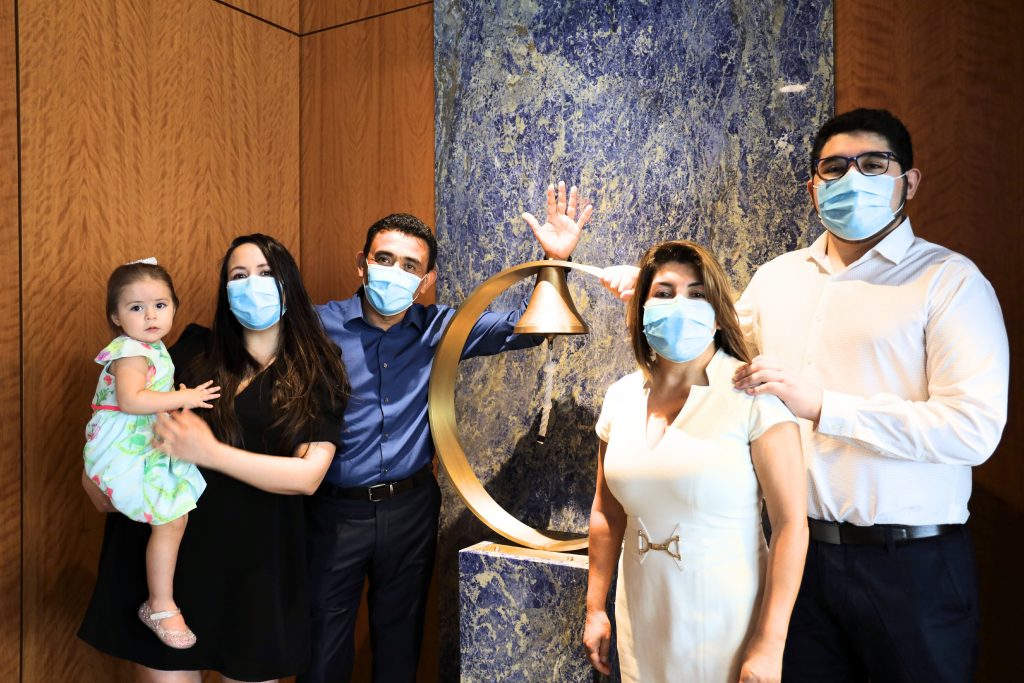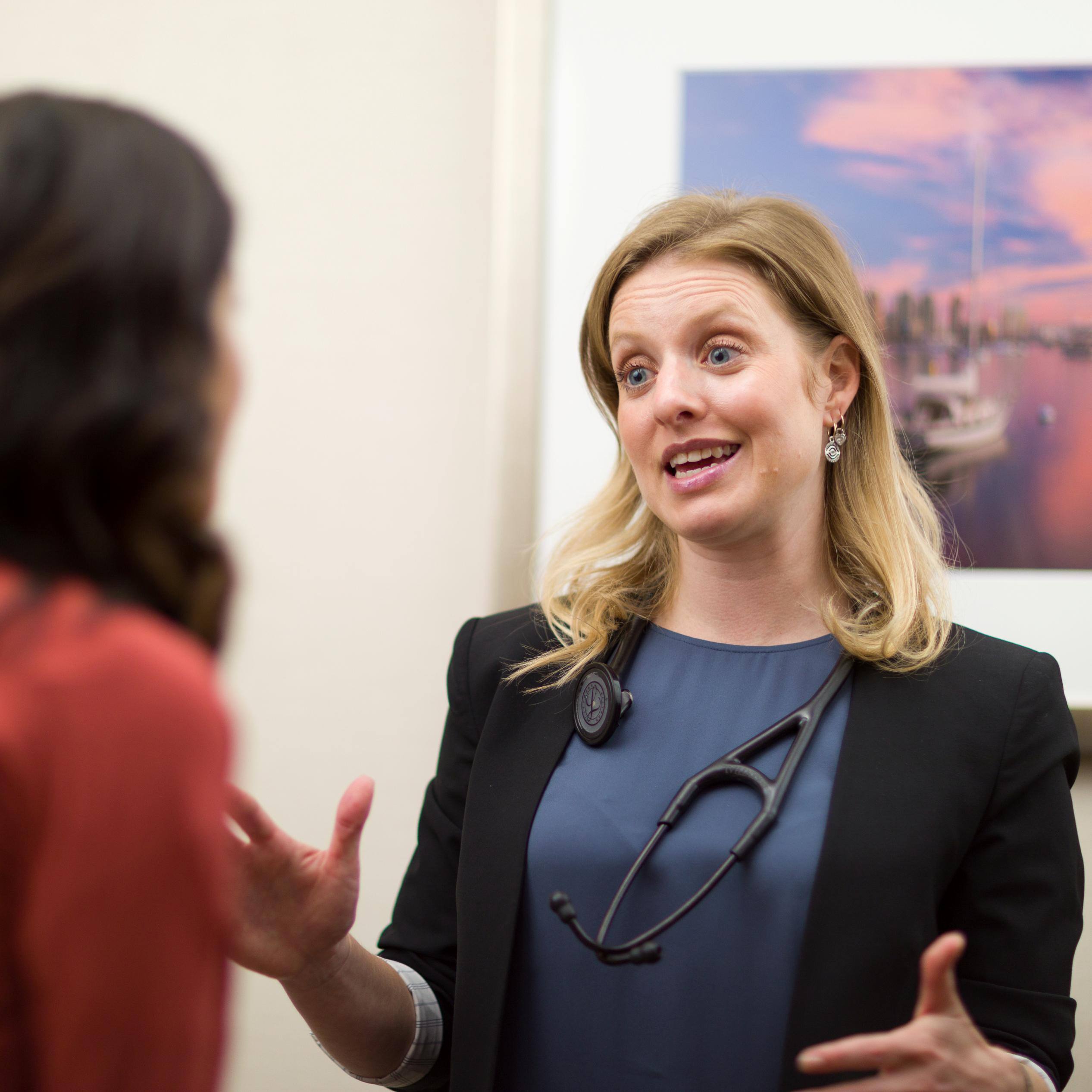
During his career in manufacturing, Eduardo Aguero has moved 18 times around Latin America. The 54-year-old has lived in many places, including Colombia, Venezuela and Panama over the years. Little did he know that a 2018 trip back to his native Chile for a business trip would be the start of an unexpected adventure.
____________________________________
As 2018 began, Eduardo Aguero recalls having some back pain and discomfort. Doctors in Colombia, where he was living at the time, said a hernia was to blame. But in June, while on a trip back to his native Chile, Eduardo, 54, grabbed his luggage from the airport baggage carousel and felt pain unlike anything he'd experienced before.
After suffering through three days of meetings without much relief, Eduardo decided to visit a nearby hospital for pain medication. It turns out Eduardo had broken three vertebrae. Local doctors said he'd need surgery immediately or he might not walk again.
His daughter, Daniela, who works in health care and was still living in Chile, began researching immediately. "I knew picking up a bag should not cause such an injury," she says.
A few days later, Eduardo learned a hernia was not the source of his pain. Rather, he had advanced multiple myeloma, a type of cancer that affects plasma cells in the bone marrow, a type of white blood cells in the body. Bone damage is a common issue for patients with this cancer.
Multiple myeloma is considered a rare cancer accounting for less than 1% of all cancer diagnoses. In the U.S., about 32,000 people are diagnosed annually with the disease; worldwide, it is estimated about 140,000 patients.
And while the average age at diagnosis is approximately 68 years, research has shown the disease can affect Hispanic individuals at a much younger age.
"The oncologist in Chile said there is no cure and in my case, the cancer was very advanced ― that it was terminal," says Eduardo.
Watch: Eduardo Aguero rings the bell, an emotional moment for him and his family.
Journalists: Broadcast-quality video (1:56) is in the downloads at the end of this post. Please courtesy, "Mayo Clinic News Network."
The family decided to look for a second opinion. Daniela's research led them to Dr. Sikander Ailawadhi, a hematologist and oncologist at Mayo Clinic's Comprehensive Cancer Center in Jacksonville, Florida, who specialized in caring for patients with multiple myeloma. "His name kept coming up over and over again. We knew he was the person we should see," says Daniela.
In July, Eduardo, his wife and daughter flew to Jacksonville to meet with Dr. Ailwadhi. By the end of the first day, he confirmed Eduardo’s diagnosis and to the family's surprise had already developed an individualized treatment plan that included the option to participate in a clinical trial.
"Dr. Ailawadhi was always positive. And during the two days I was there, I really got to trust Dr. Ailawadhi and Mayo Clinic. To me, Mayo Clinic was excellence in the sense of the latest in technology and in treatment, so I decided to stay and get my treatment with Mayo Clinic."
The family had previously lived in the U.S. and still had a condo in Boynton Beach, Florida. Eduardo and his wife moved there temporarily and began commuting to Jacksonville every two to three weeks for treatment.
By November 2018, tired of the four hour drive each way, they had moved to Jacksonville to be closer to the clinic. "We knew this was a long process," says Eduardo.
Over the next several months, Eduardo progressed through his treatment and underwent a successful bone marrow transplant on Feb. 21, 2019. By September 2019, he was back to work, traveling back and forth to Mexico between chemotherapy appointments.
But then COVID-19 came on the scene.
Though the world was still trying to understand the new coronavirus, doctors recognized the risks for someone with a compromised immune system. Dr. Ailawadhi recommended that Eduardo limit his travel.
"I felt very safe to continue with my treatment here, even during the pandemic," says Eduardo.
Thankfully his employer is flexible. So Eduardo remained in the U.S. as the pandemic grew. In May, scans were performed. By early August, Dr. Ailawadhi proclaimed him to be in “deep remission.” This meant that even with extremely sensitive tests on his the bone marrow there were no detectable cancer cells.
In early August, Daniela, who was 7 months pregnant at the time of Eduardo's diagnosis, flew to Jacksonville with her daughter, Isabel, to celebrate the milestone. And on Aug. 7, after getting an exception from clinic leadership, Dr. Ailawadhi joined Eduardo ― along with his wife, one of his sons, his daughter and granddaughter― to ring the bell at the cancer center, signifying his remission.
"The chance that my daughter has today, being here with him, we're just so thankful to the team at Mayo Clinic," says Daniela.
Though multiple myeloma is a cancer known to recur and Eduardo is considered high risk due to a genetic mutation, he is not worried. "Dr. Ailawadhi shared that they are always working on other lines of treatment. So, who knows, we could find a cure for it in the next four to five years. If not, they already have at several other treatments available and other clinical trials," he says.
For now, Eduardo is continuing with maintenance treatment every three months, but he's actively making plans for other milestone occasions.
"I want to stay around long enough to spend time with my granddaughter. When she was born, that was amazing, but I want to teach her to ride a bike. And I would like to see her going through high school," he says.
In the meantime, he hopes to inspire other patients. "I want to give other patients a message of hope: 'We can do it. I'm here.'"
MORE INFORMATION:
- Learn more about multiple myeloma
- Infographic: Multiple myeloma
- Learn more about cancer treatment at Mayo Clinic







